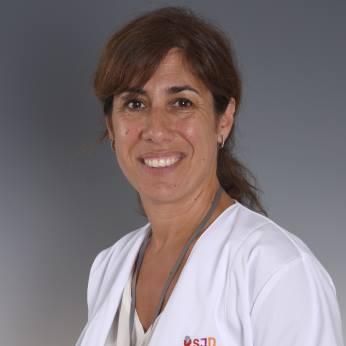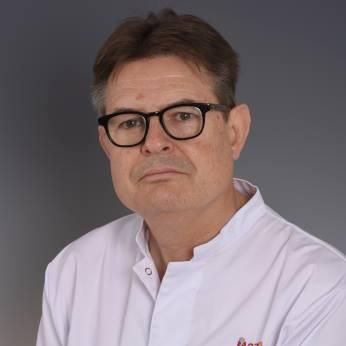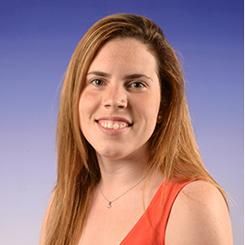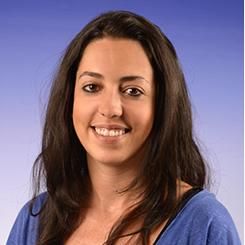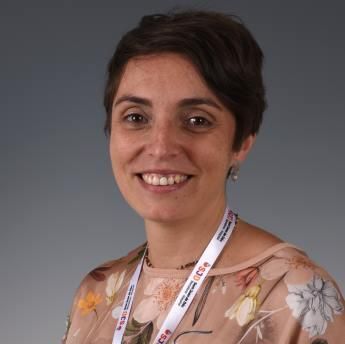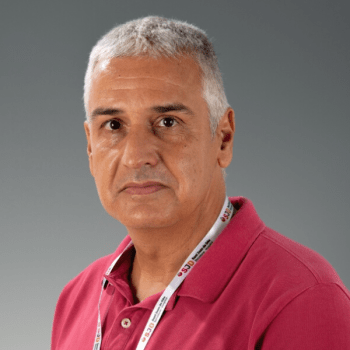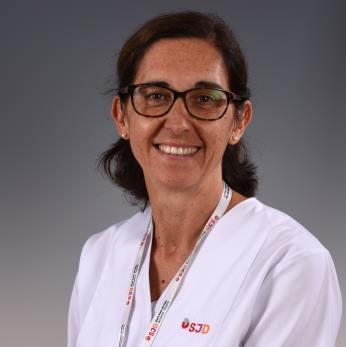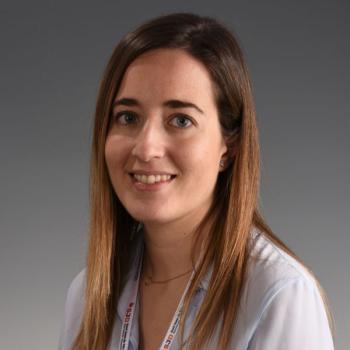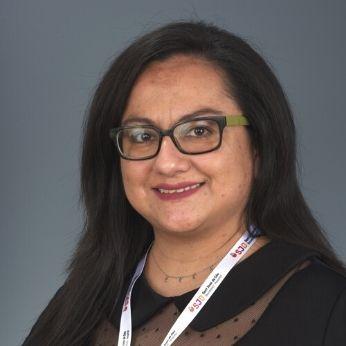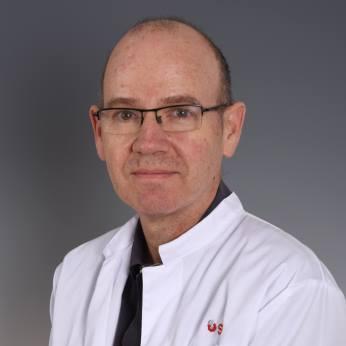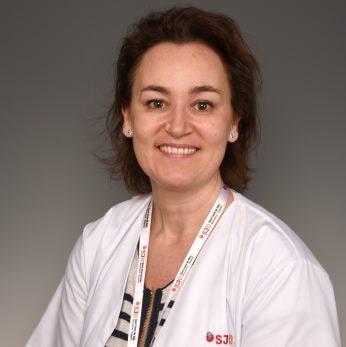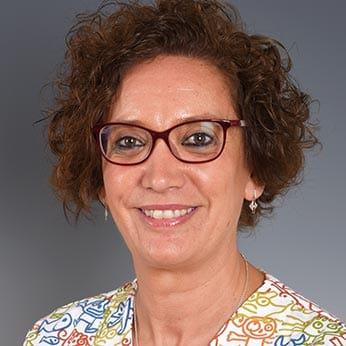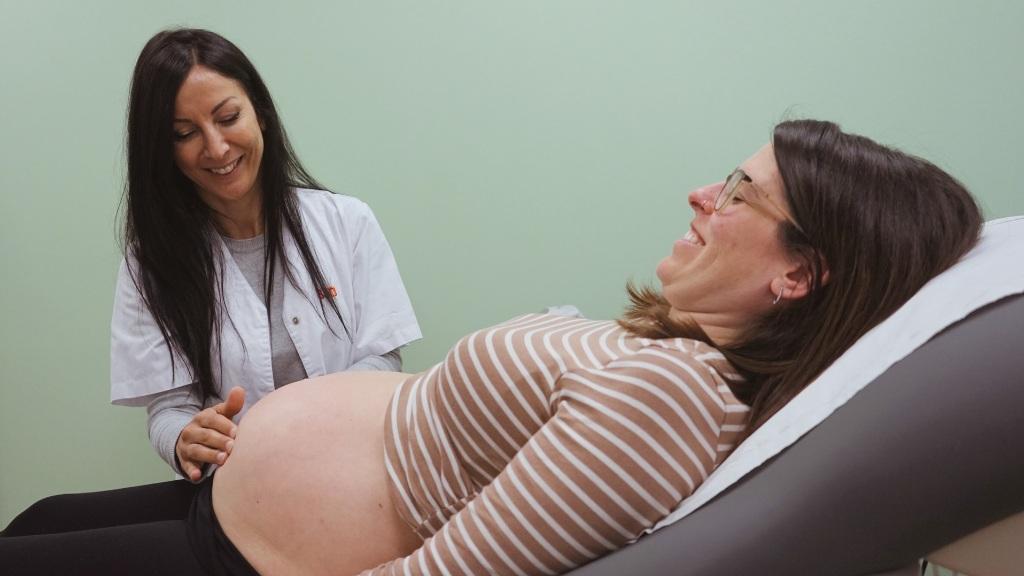
At the Maternal-Fetal Medicine and Obstetrics of SJD Barcelona Children's Hospital we care for the health of the mother and her baby.
At the Woman's Area of SJD Barcelona Children's Hospital we bring together expertise from several different areas to offer world-leading care as part of BCNatal since 2013.
- BCNatal integrates the maternal-fetal medicine departments of two first-class university hospitals: SJD Barcelona Children’s Hospital, one of the largest pediatric hospitals in Europe, and Hospital Clínic, a general hospital ranked among the world’s best.
- We are a fully comprehensive clinical centre offering state-of-the-art healthcare to mothers and their babies.
- We attend over 7,000 births per year, making BCNatal one of the largest clinical and research centres dedicated to mothers and their unborn children in Europe, hosting expertise in normal childbirth, treating the most complex and rare maternal and fetal problems, and everything in between.
- All our activity is focused on the mother and child: we offer personalized care adjusted to the specific risks of each pregnancy.
- Our work follows clinical protocols which are continuously updated according to the best scientific evidence. Our protocols are consulted online more than 60,000 times a month by physicians from other hospitals and are followed by hundreds of institutions worldwide.
Why SJD Barcelona Children's Hospital?
For normal pregnancy and delivery, our main goal is to achieve the highest safety levels with the best experience for mother and child, ensuring a personalized and respectful treatment in childbirth.
In our multidisciplinary Fetal Medicine and Surgery referral programme, we attend thousands of cases referred both from Spain and abroad for the evaluation of fetal problems. We are pioneers in fetal surgery, having applied several techniques for the first time globally and have one of the most comprehensive experiences in the world in this field.
As a world-class research and innovation centre, we generate an important part of the scientific knowledge that we continuously apply to improve our practice and to increase the safety of mothers and babies.
BCNatal Results
Annual births
Specialised fetal explorations
Cesarean section rate in low-risk pregnancies
Surgeries
Fetal surgeries
Years of experience
BCNatal integrates the maternal-fetal medicine departments of SJD Barcelona Children's Hospital and Hospital Clínic.
Pregnancy
Our main objective is for pregnant women to feel comfortable and share one of the best moments in their lives with us and their families.
These are special moments, and we would like for you to be always accompanied by the person of your choice during your visits, while you undergo ultrasounds and, ultimately, at any time during pregnancy, birth and the postpartum period.
SJD Barcelona Children's Hospital follows the MARE programme, a model that respects maternity and distinguishes us in obstetric, pregnancy, birth and postpartum care.
Para ofrecer un tratamiento seguro y respetuoso durante el parto en BCNatal - Hospital Sant Joan de Déu, innovamos continuamente aplicando avances y desarrollos en nuevas tecnologías y modelos para conseguir la mejor experiencia de maternidad y los más altos niveles de seguridad.
Safe and Dignfied Childbirth
To offer safe and respectful treatment in childbirth at BCNatal – SJD Barcelona Children’s Hospital we continuously innovate by applying advances and developments in new technology and models to achieve both the best experience of motherhood and the highest levels of safety.
- Our model of care for pregnancy, childbirth and the postpartum period mandates respectful, humanized care, based on the best scientific evidence and quality standards.
- Our highly specialized professionals and continuous fetal wellbeing surveillance systems offer the highest safety and the best experience.
- We have a specialized care programme, MARE (MAternidad REspetada — respect for maternity) at SJD Barcelona Children's Hospital to ensure a minimally medicalized, respectful and physiological childbirth.
- Our mothers receive a personalized birth plan incorporating their preferences and needs.
- We offer families informational sessions to learn about the centre and all aspects of childbirth.
- We investigate how to improve patient experience, with the mother and her family forming our mission and objective:
- Through research both qualitative (using focus groups of women, birth partners and professionals) and quantitative (using satisfaction and evaluation questionnaires) we identify the strengths and opportunities for improvement which we then prioritize and work on in multidisciplinary teams.
- We monitor indicators of care and experience regularly through our quality dashboard.
Our main objective is to achieve the highest levels of safety with the best experience for mother and baby, guaranteeing personalized and respectful treatment during childbirth.
Ten reasons for your baby to be born at SJD
Our main objective is to achieve the highest levels of safety with the best experience for mother and baby, guaranteeing personalized and respectful treatment during childbirth.
1. Welcome and information session for all pregnant women
We hold an information session with audiovisual support to inform pregnant women and their companions about our way of working, as well as the hospital facilities, the professionals involved, the standard pathways, etc. The session is conducted by a midwife who explains the entire process. If a disease has been diagnosed in the fetus, the pregnant woman meets with the neonatologist and is introduced to both the unit and the team of professionals who will treat the newborn after birth.
2. Protocols and medical history shared with the primary care centre
Follow-up of pregnancy is coordinated with primary care centres (CAPs) and the same protocols are used. In addition, the tests that you undergo can be discussed at both the hospital and your CAP. At the time of hospital discharge, low-risk patients are referred to the CAP for postpartum monitoring of the mother and the newborn.
3. Accompaniment of the pregnant woman
During pregnancy monitoring, you may be accompanied by the person of your choice on both outpatient visits and visits to the ultrasound department. You may also be accompanied on emergency visits, during the dilatation period, and in birth. Even if you have a Caesarean birth, your companion may be present. If in a vital emergency situation the team of professionals does not feel that your companion's presence is appropriate, it will explain this in advance.
4. Modern and welcoming rooms for dilatation and birth
We have modern and welcoming rooms for dilatation and birth, with no need to change rooms. Accessory materials such as balls, mirrors, music, and showers can also be used.
The newborn remains with the mother at all times, and we promote mother/baby contact, skin to skin, immediately after birth. If the mother and father authorize it, the hospital collects umbilical cord blood, which is stored in the public tissue bank. This donation poses no risk to the mother or the newborn and may contribute to the healing of children and adults who suffer from serious diseases.
5. Leading neonatology department
The Hospital has a leading Neonatology Department, which applies the most advanced technologies, such as extracorporeal membrane oxygenation (ECMO), and is specialised in the treatment of high-complexity diseases, such as extreme prematurity, heart diseases and other more prevalent diseases. Our neonatologists are available 24 hours a day, both in the delivery room and in hospitalisation.
6. Individual rooms
Of our hospitalisation rooms, 98% are for individual use and have recently been remodelled. They have a sofa bed for a companion and an adapted bathroom.
7. Special area for newborn care
The Hospital's philosophy is to keep the newborn close to the mother at all times. For this reason, we have adapted our rooms with an area specially prepared to provide newborn care.
8. Hospital open 24 hours a day to families
At the Hospital we do not limit visits to a few specific time slots, so you may receive a visit whenever you wish. We are open 24 hours a day, both in hospitalisation and in the Neonatal Intensive Care Unit, in order to promote contact between parents and newborns at all times.
9. Leading healthcare team
A highly qualified healthcare team cares for you at all times. In addition, if necessary, the newborn is cared for in the Neonatal Intensive Care Unit, which has first-class facilities and cutting-edge therapies. The hospital is also a referral centre for several fetal diseases.
10. Natural birth assistance without risk
All low-risk pregnant women who desire it may have natural birth assistance. The protocol is presented to the pregnant woman at the primary care centre. The protocol is presented at the primary care center and a visit is made to the hospital with the midwife to agree on the entire process until birth and share the delivery plan.
BCNatal – SJD Barcelona Children’s Hospital provides expertise and care for all kinds of high-risk pregnancy.
Complications of Pregnancy
BCNatal – SJD Barcelona Children’s Hospital provides expertise and care for all kinds of high-risk pregnancy.
- We are experts on the main complications of pregnancy, and have specialized units for fetal growth restriction, preeclampsia, prematurity and multiple pregnancy.
- We offer multidisciplinary follow-up and management for women with pre-existing medical conditions that confer a high-risk in pregnancy and during delivery (among others, diabetes, immunological and renal diseases).
- Our specialists in adult medicine from Hospital Clínic, one of the best general hospitals in Europe, allow us to provide care for all maternal medical problems in pregnancy.
Areas of expertise
- Fetal growth issues: Our team of international experts optimize prenatal management and obstetric decision-making, playing a decisive role in determining your newborn’s prognosis.
- Preeclampsia: Our comprehensive follow-up protocol for symptoms of hypertension in pregnancy allows us to effectively navigate all risks to the mother and unborn child.
- Risk of premature birth: We have cutting-edge technology to monitor pregnancies when any risk of premature birth is detected.
- Gestational diabetes: Gestational diabetes is the most common metabolic disorder associated with pregnancy. Good planning minimizes the consequences of this condition in the mother and the fetus.
- Infectious maternal disease: Our specialists in early detection and treatment of fetal disease have extensive experience in helping to decrease transmission to and infection of newborns.
- Multiple pregnancy: Our specialists have extensive cumulative experience in antenatal and intrapartum management of pregnancies with monochorionic and dichorionic twins.
- Pre-existing maternal conditions: We also provide care for all pre-existing maternal conditions (cardiac, renal and digestive among others).
Consult what you should bring to the SJD Barcelona Children’s Hospital if you have decided to give birth in our center.
The baby's layette
Consult what you should bring to the SJD Barcelona Children’s Hospital if you have decided to give birth in our center.
When it gets close to the time your baby is due, it’s a good idea to prepare a bag with the things you’ll need while you’re in hospital. How long you’re in hospital for it will depend on whether you have a normal childbirth or a caesarean section. As a guide, we recommend bringing the following:
Hospital bag for the mother
- Short-sleeved nightdresses or pyjamas, with straps or buttons at the front to make it easy to breastfeed.
- Nursing bras, according to each mother’s own preferences. They’re not essential but they are more comfortable. The important thing is that they should not be underwired.
- Briefs. We recommend disposable net briefs or normal ones that are a suitable size.
- Slippers.
- Toilet bag with toiletries. Hair dryer if you need one (not available in the rooms).
- Clothes for going home in, preferably loose and comfortable.
- The hospital has a vending machine where you can buy nipple shields and breast pump accessories.
- Don’t forget to bring all the things you think you’ll need while you’re in labour.
- You don’t need to bring sanitary towels.
- You don’t need to bring towels.
IMPORTANT FOR YOUR COMPANION:
We have a sofa that your companion can sleep on, but we do not provide sheets, pillow or blankets. You can bring these from home if you think you will need them. If you like, you can purchase a voucher from the dispensing machines located next to the emergency desk in the Women’s Health Area and we will then provide you with bedding.
Baby’s layette
All the clothes need to be washed with neutral soap before being used for the first time and all the labels should be cut off. We recommend choosing natural fabrics and avoiding synthetic material that can cause skin allergies.
- 1 or 2 packs of nappies.
- 4 comfortable cotton or linen outer sleepsuits.
- 4 changes of underclothes (can be rompers or vests and bodysuits).
- 4 pairs of socks.
- 2 cotton hats.
- 2 baby shawls (piece of cloth or blanket to wrap your baby in).
The clothes may be warm or light, depending on what time of year the baby is born. We don’t recommend clothes with ties or zips, and it’s better to avoid items that have to go on over the head, because your baby’s head will still be very sensitive.
Baby’s toilet bag
- A small bag to take into the delivery room with: a nappy, a baby hat and the mother’s Spanish ID card (DNI) or other ID document.
- 1-2 packs of nappies (choose the size according to the estimated weight).
- Natural sea sponge (optional).
- Changing mat.
- Wet wipes.
- Dummy: we don’t recommend dummies before babies are twenty days old, so there is no need to bring one with you to the hospital.
- Earrings: babies born in our hospital can have their ears pierced before they go home if the family so requests, but remember that it is not a medical service or a medical recommendation. The hospital offers this service for a fee while the mother and baby are in hospital, but you have to provide the earrings yourselves (we don’t recommend hoops). The service costs 30 euros and the money goes directly to the hospital charity programmes. You can purchase a voucher from the vending machines located next to the emergency desk in the Women’s Health Area.
Documentation needed
- Mother’s ID card (DNI), passport or residency card.
- Parents’ healthcare card or insurance company card (if the person registered with social security is not the mother).
- Family book or marriage certificate, if applicable.
- Birth plan.
- Documents related to monitoring the pregnancy (pregnant woman’s identity card, test results, etc.).
- Pen for filling in forms.
One of the formalities that can be taken care of at SJD Barcelona Children’s Hospital during the admission if the family so wishes is to register the birth of the baby in the Civil Register.
How to register the newborn baby at the hospital
One of the formalities that can be taken care of at SJD Barcelona Children’s Hospital during the admission if the family so wishes is to register the birth of the baby in the Civil Register.
Since October 2015, it has been possible to register births electronically at the health centres where children are born. The Women’s Health area team will inform you about how to apply for registration (it is not instant) and enter the information in the Ministry of Justice’s website. The baby is registered after it is born
What you need to know about registering your baby at SJD Barcelona Children’s Hospital
The Hospital management can only notify the birth of a child in the first 72 hours after the baby is born and provide the information to guarantee correct identification of the newborn and relationship with the mother. Birth is the first event in the newborn’s life that has to be registered in the Civil Register by law. The procedure provides a record of the date, time and place of birth of the baby, as well as its gender and the names of the parents. You can find all the information related to this certificate on the Ministry of Justice website .
IMPORTANT: if both parents are registered in the same town, you can ask to register the baby there. To do that, both parents will need to take their Spanish ID card (DNI) or foreign resident ID card (NIE).
- If you want to do the registration at the Hospital, the baby will be registered in the Civil Registry Office of Esplugues de Llobregat.
- IT IS NOT POSSIBLE to register the birth if the documentation provided is a passport (it is a requirement of the computer system), as the local council registry office only recognises DNIs or NIEs as documentation associated with the address.
- It’s a good idea to ask the ward clerical staff for an appointment (preferably in the morning), as they work with an appointment schedule for registrations.
Conditions and documents for registering the birth
In what cases can the birth registration application be made from SJD Barcelona Children’s Hospital?
- It has to be done within 72 hours of the birth. Past that time it is not possible to register the birth at the hospital.
- The baby must have been born in SJD Barcelona Children’s Hospital.
- The parents must be over eighteen.
- In the case of a child of a married couple:
- One of the parents must have Spanish nationality.
- If both parents are foreigners, they must both have the same nationality.
- If the baby’s parents are not married:
- The identity of both parents is established if the declarants are single and both sign the application.
- The identity of the mother is established if only the mother is signing the application.
- If the baby is born to a single mother.
- If the baby is born to two legally married women.
Where do you register the baby?
- At SJD Barcelona Children’s Hospital. You need to ask the ward clerical staff for an appointment in the morning, as they work with an appointment schedule for registrations.
- The registration process is done in themother’s room in our centre’s maternity admissions area.
- Both parents must be present to fill out the paperwork.
- The process lasts about 45 minutes.
- When your son or daughter is born, contact the member of staff at the main desk on the ward where the mother is admitted in the morning .
- If your baby is admitted to the Neonatal Unit, we can still register the birth from the Hospital. In fact, it is usually a good idea to do so, so that one of the parents can take care of the preliminary formalities outside the hospital while the mother looks after the newborn and recovers from the birth.
Which documentation is needed to register the birth from the Hospital?
- The medical birth certificate that the Hospital will give you once the baby is born.
- The DNI, NIE or passport of both parents (originals) and of the applicant if they are not one of the parents.
- The family book or marriage certificate if the parents are married. If the parents were married abroad, the marriage certificate needs to be properly translated before the process can be carried out.
Which documentation does the Hospital provide?
On the acknowledgement of receipt that the notification has been made, there is a secure verification code at the foot of the page for the General Directorate for Registry Offices and Notaries, with the address of a website where you can check the authenticity of the document.
The Hospital cannot process the notification in the following cases:
- Any case that does not meet the necessary conditions referred to above.
- If the mother is separated, divorced or in the process of becoming so.
- Presumption of paternity: refers to babies in a marriage in the phase of breaking up in which the paternity of the baby is not clear.
- In the case of incapacity, absence or death of one of the parents.
In all these situations the registration must be made in person at the Civil Registry Office.
What does the Civil Registry Office do after the registration at the Hospital?
The Civil Registry Office receives the application and, once they have done the formal registration, sends out a certified copy of the Birth Certificate by post or by email. Once you have received this certificate, the family book will be automatically updated.
If you do not want to register the baby, or you do not meet the required conditions:
You must go to the Civil Registry Office and present the documentation required in each case. You can find more information about this on the Generalitat de Catalunya (Catalan Government) website.
Childbirth experience in SJD Barcelona Children's Hospital

Fetal Medicine
We care for children’s health even before they leave the womb with advanced prenatal diagnosis. We are leaders in fetal medicine.
- We conduct more than 8,500 advanced fetal examinations yearly, including 3,000 echocardiographies and 1,200 neurosonographies.
- As part of the almost 1,000 prenatal diagnosis procedures we carry out yearly we offer the full range of advanced genetic techniques (array-CGH, whole exome sequencing) and non-invasive prenatal testing (NIPT).
Prenatal diagnosis techniques to detect fetal problems may enable a pregnancy to continue and significantly improve an unborn child’s future quality of life.
Fetal medicine techniques
Prenatal diagnosis techniques to detect fetal problems may enable a pregnancy to continue and significantly improve an unborn child’s future quality of life.
Main diagnostic techniques in fetal medicine that we have:
- High-resolution fetal ultrasound: allows the diagnosis of up to 85% of defects with a structural or morphological manifestation.
- Fetal echocardiography: is a specialized ultrasound dedicated to explore the heart. At BCNatal all complex evaluations are performed by a multidisciplinary team with fetal medicine doctors and pediatric cardiologists, all specialized in fetal cardiology.
- Fetal neurosonography: is a specialized ultrasound dedicated to explore in detail the fetal brain. It provides highly detailed diagnosis of central nervous system, which can be very challenging to detect and diagnose precisely. Our multidisciplinary approach involves fetal medicine doctors specialized in the fetal brain, working together with neuroradiologists, neurologists and neonatologists.
- Fetal magnetic resonance imaging (MRI): obtains images of the fetus's anatomy before birth to detect potential birth defects. It is a technique that complements standard ultrasound.
- Genetic abnormalities in maternal blood: this technique detects the risk of chromosomal or genetic abnormalities, combining a first-trimester ultrasound and a test to detect fetal DNA in maternal blood.
- Invasive prenatal diagnostic tests: our team has vast experience in the most common types of tests such as amniocentesis, cordocentesis or Chorionic Villus Sampling (CVS). We perform any type of specific invasive procedure on the fetus and we are pioneers in some of them such as the chorion biopsy.
- Non-invasive test of fetal lung maturity: our fetal R&D team has developed a technique in which a computerized analysis is performed on an ultrasound of fetal lungs to determine their maturity.
Our specialized units offer world-class prenatal diagnosis for fetal problems, with a high precision diagnosis and prognosis, and are linked to our fetal surgery program when therapy is required.
Our units
Our specialized units offer world-class prenatal diagnosis for fetal problems, with a high precision diagnosis and prognosis, and are linked to our fetal surgery program when therapy is required.
Fetal Cardiology Unit
Congenital heart diseases affect approximately 0.8-1% of newborns, half of these seriously. Children with cardiac defects are treated before birth in our centre. For more than 20-years our multidisciplinary units offer the highest level of diagnosis and prognosis for babies with congenital heart defects. We have conducted extensive research and developed techniques for advanced cardiac structural and cardiac functional evaluation.
Multidisciplinary teams involving fetal medicine specialists, cardiologists and cardiac surgeons prepare all cases in detail and offer top-class perinatal management, with optimal preparation of postnatal management and surgery where required.
Fetal Neurology Unit
The diagnosis of a fetal brain problem always entails great stress for families. The prognosis can vary substantially and it is critical to provide the highest level of precision in the evaluation.
We are pioneers in fetal neurosonography with a large number of scientific publications dedicated to the study of the fetal brain. Our multidisciplinary Fetal Neurology group includes fetal medicine doctors specialized in the fetal brain, neuroradiologists, neurologists, neurosurgeons and neonatologists, and where required pathologists and geneticists. We offer a top-level diagnosis and prognosis thanks to the combination of our knowledge in neurosonography and fetal brain MRI.
Unit for Fetal Defects Amenable to Surgical Treatment (pre or postnatal)
Fetuses may present defects in the lungs and airways, abdomen or urinary system, that will require a surgical treatment. In some rare cases this treatment must be performed before birth to achieve the best results, and for this we have our fetal surgery program.
In many cases, prenatal surgery is not required. However, it is essential to plan carefully the best pregnancy management and postnatal care. To achieve that, after a highly detailed diagnosis involving top-level fetal ultrasound and MRI, our unit gathers fetal medicine specialists with pediatric surgeons and neonatologists, and where appropriate urologists, nephrologists, ENT surgeons and other pediatric specialties. All these specialists are involved in the multidisciplinary evaluation and family counselling to decide the best management for each case.
Prenatal Diagnosis Unit
We are pioneers in prenatal screening of genetic and chromosome defects and provide all techniques for non-invasive and invasive prenatal diagnosis, with an extremely low rate of complications after amniocentesis or CVS.
Multiple Pregnancy Unit
Twins and other multiple pregnancies always represent a challenge for obstetrics and maternal-fetal medicine. In a proportion of twins, the placenta is shared between the two fetuses. They are defined as monochorionic twins, and they have a higher rate of complications, occasionally requiring fetal surgery.
We are pioneers in the diagnosis of monochorionic twins complications, have conducted comprehensive research to improve the diagnosis and our understanding of the main complications. Thanks to that knowledge, we can offer highly specialized care for monochorionic twins and multiple pregnancy in general.
Other Units involving specialized Maternal-Fetal Medicine care
- Fetal Growth Unit: in our dedicated unit we have attended thousands of pregnancies affected by poor fetal growth, we have developed classifications and follow-up schemes, and we apply this long-standing expertise for the best management and counselling of these complex cases.
- Prematurity Unit: we care for women with a high risk for prematurity and offer them specialized follow-up and preventive measures.
Fetal Surgery and Therapy
We have long led the world in fetal surgery and continue to research and develop new techniques in our international fetal surgery program..
We are experts in fetal problems and every year thousands of families are referred to us, not only from the local area but also from around the world. In Spain, we are responsible for a relevant part of fetal surgeries performed.
Fetal surgery referents
We are experts in fetal problems and every year thousands of families are referred to us, not only from the local area but also from around the world. In Spain, we are responsible for a relevant part of fetal surgeries performed.
- 25 years of experience: Pioneers in fetal surgery and an accumulated experience of more than 2,000 fetal surgeries. We treat more than 100 cases each year.
- At the forefront of fetal surgery: We have first performed several new fetal operations and contributed to the development of many others.
- Minimally invasive procedures: We have a consolidated experience in a full range of minimally invasive procedures carried out on both mother and fetus.
- Research is a priority for us: We publish our own data on operation times and pregnancy outcomes for most currently offered operations, being at the forefront of research and development.
We are structured in multidisciplinary clinical units with fetal medicine and pediatric specialists to offer comprehensive counselling and care for a child before its birth and throughout its childhood. For instance, every year our Fetal Cardiology team, comprising fetal medicine and pediatric cardiologist specialists, take care of 200 babies with congenital heart defects that are prenatally diagnosed.
The pediatric specialists and surgeons at SJD Barcelona Children’s Hospital are involved in our clinical units, which offer state-of the-art clinical care for all pediatric problems after birth. In our multidisciplinary Fetal Medicine Session, all complex cases are discussed by all relevant specialists to ensure that the maximum expertise informs decisions on management and therapy.
Specialities and services
Pathologies we treat
Quality Monitoring
At BCNatal's activity in the Women's Area of SJD Barcelona Children's Hospital, we work to provide healthcare based on scientific evidence, safety and quality, accompanied by the best experience for the mother and child.
Humaneness, knowledge and teamwork are the values helping us to achieve excellence in care. Participation of families in our work groups helps us to understand and meet their expectations.
Main features that characterize our centre
- All our practice is performed according to protocols, which are updated every 3 years.
- We have audit systems to ensure protocol adherence and reduce clinical variability.
- Our protocols are an international reference. Accessible online in Spanish, they are consulted more than 60,000 times each month.
We conduct several weekly clinical sessions and all important cases are discussed and analysed by a group of expert professionals.
In addition to continuous training sessions, all professionals must attend simulation sessions once or twice a year to receive training in how to deal with rare emergency situations.
- This committee performs a continuous analysis of all safety incidents, complaints and quality indicators that are part of the Healthcare Quality Dashboard, with comparative evolution against previous years.
- A newsletter is produced every 6 months.
- Clinical safety cases are selected and presented to the service on a monthly basis to establish lines of work and improvement.
A multidisciplinary committee issuing a report to affected families, with a final diagnosis and recommendations for future pregnancies if applicable.
BCNatal professionals meet annually to assess how to improve clinical quality and patient care. This meeting sets out the yearly goals, lines of work and their indicators.
Research
The Institut de Recerca Sant Joan de Déu (IRSJD) boasts a research group into Foetal medicine and surgery: a multidisciplinary team associated with BCNatal-FMRC and the Universitat de Barcelona. Their goal is to identify early diagnostic and treatment methods for prenatal diseases.
At BCNatal’s we continuously search for answers to open questions about pregnancy and birth.
- With almost 100 researchers, BCNatal has one of the largest international scientific productions in the field of maternal-fetal medicine.
- We have developed better and safer healthcare protocols, new diagnostic techniques and methods, and new treatments for the fetus.
- We have tested and refined in our own practice most of the medical innovations and improvements that we offer our patients.
- We publish over 70 scientific articles per year in prestigious peer-reviewed journals.
- We continuously present our novel discoveries in international congresses.
We perform our activity as part of the Women's Area of the SJD Barcelona Children's Hospital and the Hospital Clinic.
Our Professionals
“We offer highly specialised care that seamlessly integrates the most complex techniques in fetal medicine with a respectful birth.”

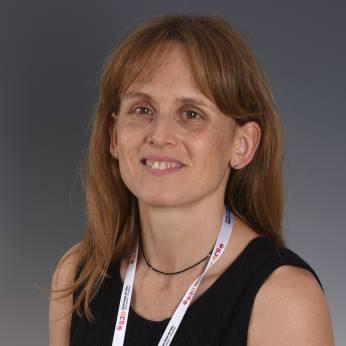
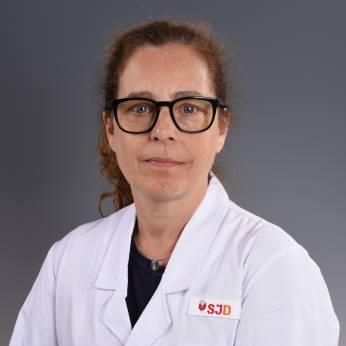
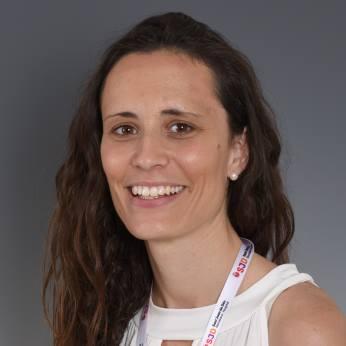
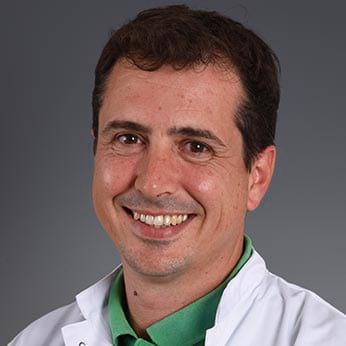
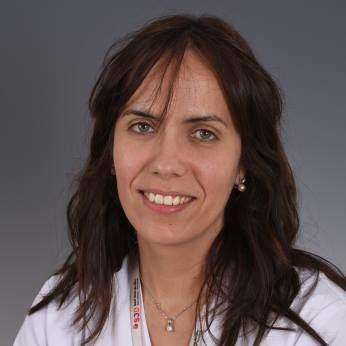

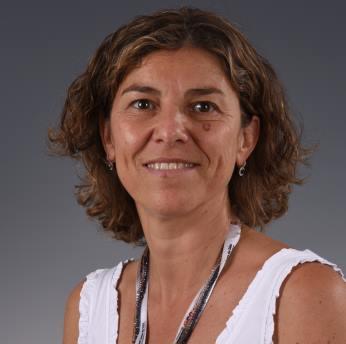
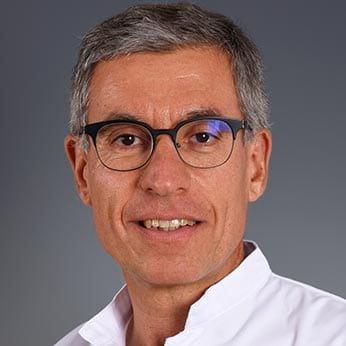
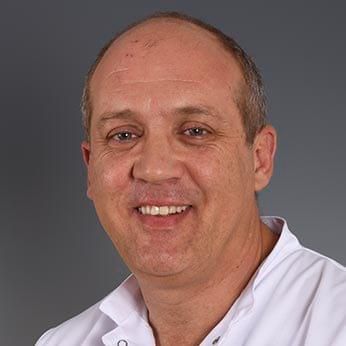
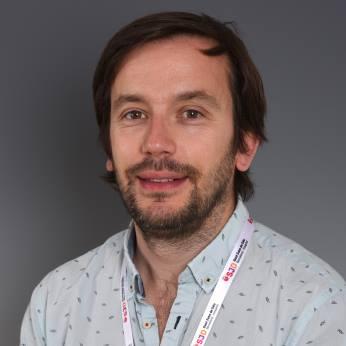
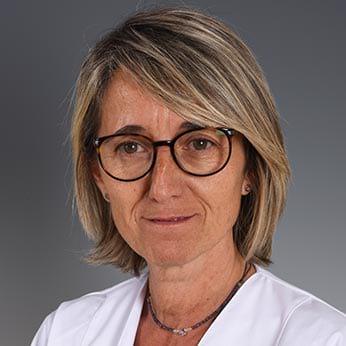



Teaching
In partnership with fetal I+D Education, BCNatal offers highly specialised courses both on site and online in the areas of obstetrics, gynaecology and fetal medicine.
At SJD Barcelona Children's Hospital, we have the Darwin Simulation Centre, where we give the course Advanced Simulation of Obstetric Emergencies.



